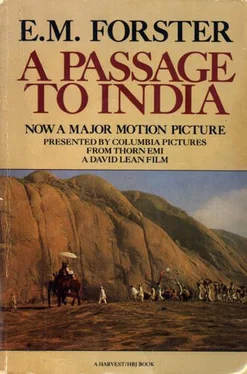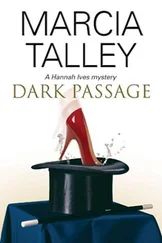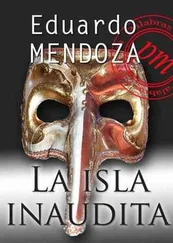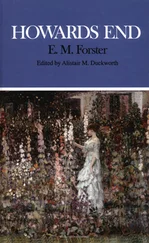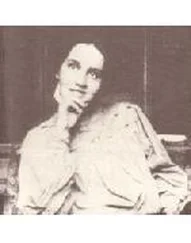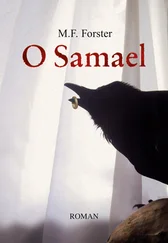"Isn't the lesson that you should invite all the Pleaders to have a smoke with you?"
"Perhaps, but time's limited and the flesh weak. I prefer my smoke at the club amongst my own sort, I'm afraid."
"Why not ask the Pleaders to the club?" Miss Quested persisted.
"Not allowed." He was pleasant and patient, and evidently understood why she did not understand. He implied that he had once been as she, though not for long. Going to the verandah, he called firmly to the moon. His sais answered, and without lowering his head, he ordered his trap to be brought round.
Mrs. Moore, whom the club had stupefied, woke up outside. She watched the moon, whose radiance stained with primrose the purple of the surrounding sky. In England the moon had seemed dead and alien; here she was caught in the shawl of night together with earth and all the other stars. A sudden sense of unity, of kinship with the heavenly bodies, passed into the old woman and out, like water through a tank, leaving a strange freshness behind. She did not dislike Cousin Kate or the National Anthem, but their note had died into a new one, just as cocktails and cigars had died into invisible flowers. When the mosque, long and domeless, gleamed at the turn of the road, she exclaimed, "Oh, yes—that's where I got to—that's where I've been."
"Been there when?" asked her son.
"Between the acts."
"But, mother, you can't do that sort of thing."
"Can't mother?" she replied.
"No, really not in this country. It's not done. There's the danger from snakes for one thing. They are apt to lie out in the evening."
"Ah yes, so the young man there said."
"This sounds very romantic," said Miss Quested, who was exceedingly fond of Mrs. Moore, and was glad she should have had this little escapade. "You meet a young man in a mosque, and then never let me know!"
"I was going to tell you, Adela, but something changed the conversation and I forgot. My memory grows deplorable."
"Was he nice?"
She paused, then said emphatically: "Very nice."
"Who was he?" Ronny enquired.
"A doctor. I don't know his name."
"A doctor? I know of no young doctor in Chandrapore. How odd! What was he like?"
"Rather small, with a little moustache and quick eyes. He called out to me when I was in the dark part of the mosque—about my shoes. That was how we began talking. He was afraid I had them on, but I remembered luckily. He told me about his children, and then we walked back to the club. He knows you well."
"I wish you had pointed him out to me. I can't make out who he is."
"He didn't come into the club. He said he wasn't allowed to."
Thereupon the truth struck him, and he cried, "Oh, good gracious! Not a Mohammedan? Why ever didn't you tell me you'd been talking to a native? I was going all wrong."
"A Mohammedan! How perfectly magnificent!" exclaimed Miss Quested. "Ronny, isn't that like your mother? While we talk about seeing the real India, she goes and sees it, and then forgets she's seen it."
But Ronny was ruffled. From his mother's description he had thought the doctor might be young Muggins from over the Ganges, and had brought out all the cornradely emotions. What a mix-up! Why hadn't she indicated by the tone of her voice that she was talking about an Indian? Scratchy and dictatorial, he began to question her. "He called to you in the mosque, did he? How? Impudently? What was he doing there himself at that time of night?—No, it's not their prayer time."—This in answer to a suggestion of Miss Quested's, who showed the keenest interest. "So he called to you over your shoes. Then it was impudence. It's an old trick. I wish you had had them on."
"I think it was impudence, but I don't know about a trick," said Mrs. Moore. "His nerves were all on edge—I could tell from his voice. As soon as I answered he altered."
"You oughtn't to have answered."
"Now look here," said the logical girl, "wouldn't you expect a Mohammedan to answer if you asked him to take off his hat in church?"
"It's different, it's different; you don't understand."
"I know I don't, and I want to. What is the difference, please?"
He wished she wouldn't interfere. His mother did not signify—she was just a globe-trotter, a temporary escort, who could retire to England with what impressions she chose. But Adela, who meditated spending her life in the country, was a more serious matter; it would be tiresome if she started crooked over the native question. Pulling up the mare, he said, "There's your Ganges."
Their attention was diverted. Below them a radiance had suddenly appeared. It belonged neither to water nor moonlight, but stood like a luminous sheaf upon the fields of darkness. He told them that it was where the new sand-bank was forming, and that the dark ravelled bit at the top was the sand, and that the dead bodies floated down that way from Benares, or would if the crocodiles let them. "It's not much of a dead body that gets down to Chandrapore."
"Crocodiles down in it too, how terrible!" his mother murmured. The young people glanced at each other and smiled; it amused them when the old lady got these gentle creeps, and harmony was restored between them consequently. She continued: "What a terrible river! what a wonderful river! "and sighed. The radiance was already altering, whether through shifting of the moon or of the sand; soon the bright sheaf would be gone, and a circlet, itself to alter, be burnished upon the streaming void. The women discussed whether they would wait for the change or not, while the silence broke into patches of unquietness and the mare shivered. On her account they did not wait, but drove on to the City Magistrate's bungalow, where Miss Quested went to bed, and Mrs. Moore had a short interview with her son.
He wanted to enquire about the Mohammedan doctor in the mosque. It was his duty to report suspicious characters and conceivably it was some disreputable hakirn who had prowled up from the bazaar. When she told him that it was someone connected with the Minto Hospital, he was relieved, and said that the fellow's name must be Aziz, and that he was quite all right, nothing against him at all.
"Aziz! what a charming name!"
"So you and he had a talk. Did you gather he was well disposed?"
Ignorant of the force of this question, she replied, "Yes, quite, after the first moment."
"I meant, generally. Did he seem to tolerate us—the brutal conqueror, the sundried bureaucrat, that sort of thing?"
"Oh, yes, I think so, except the Callendars—he doesn't care for the Callendars at all."
"Oh. So he told you that, did he? The Major will be interested. I wonder what was the aim of the remark."
"Ronny, Ronny! you're never going to pass it on to Major Callendar?"
"Yes, rather. I must, in fact!"
"But, my dear boy—"
"If the Major heard I was disliked by any native subordinate of mine, I should expect him to pass it on to me."
"But, my dear boy—a private conversation!"
"Nothing's private in India. Aziz knew that when he spoke out, so don't you worry. He had some motive in what he said. My personal belief is that the remark wasn't true."
"How not true?"
"He abused the Major in order to impress you."
"I don't know what you mean, dear."
"It's the educated native's latest dodge. They used to cringe, but the younger generation believe in a show of manly independence. They think it will pay better with the itinerant M.P. But whether the native swaggers or cringes, there's always something behind every remark he makes, always something, and if nothing else he's trying to increase his izzat—in plain knglo-Saxon, to score. Of course there are exceptions."
"You never used to judge people like this at home."
"India isn't home," he retorted, rather rudely, but in order to silence her he had been using phrases and arguments that he had picked up from older officials, and he did not feel quite sure of himself. When he said "of course there are exceptions" he was quoting Mr. Turton, while " increasing the izzat" was Major Callendar's own. The phrases worked and were in current use at the club, but she was rather clever at detecting the first from the second hand, and might press him for definite examples.
Читать дальше
